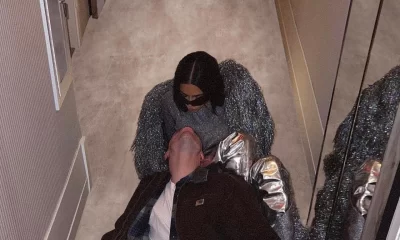Updates
Why Bill Cosby was released from prison
Bill Cosby walked free after three years in jail when the Pennsylvania Supreme Court overturned his 2018 convictions on charges of drugging and sexually assaulting Andrea Constand in 2004, while she was a Temple University employee.
The court decision on Wednesday was the consequence of an arrangement Mr. Cosby made with a district attorney, Bruce Castor, in 2005, in which Mr Castor agreed not to prosecute Mr. Cosby in return for the comedian’s testimony in a civil trial. Mr. Cosby was sentenced to three to ten years in a state prison outside Philadelphia.
The fact that a procedural problem can lead to the release of a man accused of rape or sexual assault by more than 60 women has shed light on the harsh reality for survivors seeking justice in court. However, supporters stated that this should not be used to dismiss the progress that has been achieved, and that it should serve as a reminder of why further changes to the criminal justice system are required.
Angela Rose, founder and executive director of the advocacy organization Promoting Awareness, Victim Empowerment (Pave), told the Guardian, “This is truly a battle cry for the victim rights movement.”
“There is so much that needs to be done and I hope this is a watershed moment to unite survivors across the country.”
Trending:
Mr. Cosby issued the following statement on social media: “Thank you to all my fans, supporters and friends who stood by me through this ordeal. I have never changed my stance nor my story. I have always maintained my innocence. Special thanks to the Pennsylvania Supreme Court for upholding the rule of law. ” A picture of Mr. Cosby punching the air was included in the statement.
Cosby’s trial was a watershed moment in the #MeToo movement, bringing further attention to statute of limitations rules, which prevent survivors from pursuing a case after a certain amount of time has elapsed. Following the Cosby case and decades of advocacy, California repealed its 10-year statute of limitations for rape prosecutions in 2016.
The court majority decided that prosecutors violated Mr. Cosby’s rights by failing to follow through on an apparent agreement not to prosecute him.
The Pennsylvania justices ruled that the agreement barred prosecution for the claims brought by Andrea Constand, the former director of operations for Temple’s women’s basketball team, and wrote that Pennsylvania’s district attorneys’ prosecutorial discretion was not “free of the constraints of due process.”
Montgomery County District Attorney Kevin Steele filed criminal charges against Cosby in 2015, just days before Constand’s 12-year statute of limitations expired. When dozens of additional Cosby accusers went forward in 2014 and 2015, the bulk of their cases were past the statute of limitations.
In her statement, Constand said that the decision to reverse the verdict was based on “a procedural technicality.”
Mr. Castor, who was one of the defense lawyers in President Donald J. Trump’s second impeachment trial before the Senate this year, has stated that he announced in 2005 that Mr. Cosby would not be charged in order to prevent him from invoking his Fifth Amendment right against self-incrimination, requiring him to testify in Ms. Constand’s pending civil case.
The lawsuit was resolved for $3.4 million in 2006.
Mr Cosby “was found guilty by a jury and now goes free on a procedural issue that is irrelevant to the facts of the crime,” said the current district attorney of Montgomery County, where the trial took place, in a statement to ABC News.
The Supreme Court questioned whether Castor’s agreement with Cosby’s legal team, which was not documented in writing other than in a news release, was binding. Constand and her attorneys said they were not informed of such an agreement.
Against this background, a legal debate developed about whether Mr. Castor had made a legally enforceable guarantee that Mr. Cosby would not be prosecuted — and, if so, whether he had the right to do so. Mr. Castor insisted he had made such a promise, but the trial judge disagreed and decided that the criminal prosecution filed by the new district attorney could go forward. However, the majority of the Supreme Court agreed with Mr. Castor’s view of what he had done.
“The discretion vested in our Commonwealth’s prosecutors, however vast, does not mean that its exercise is free of the constraints of due process,” the Pennsylvania Supreme Court justices said in their 79-page ruling.
“When an unconditional charging decision is made publicly and with the intent to induce action and reliance by the defendant, and when the defendant does so to his detriment (and in some instances upon the advice of counsel), denying the defendant the benefit of that decision is an affront to fundamental fairness, particularly when it results in a criminal prosecution that was foregone for more than a decade,” the justices wrote.
While this does not necessarily imply that shielding Mr. Cosby from prosecution was the correct thing to do, Mr. Castor said in a phone interview on Wednesday that he felt the Supreme Court’s ruling in 2005 had “exonerated” his prosecutorial decision-making in 2005. According to him, the decision was a “shellacking” for the present district attorney’s office.
“I was right back in 2005, and I’m right in 2021,” Mr. Castor said. “I’m proud of our Supreme Court for having the courage to make an unpopular decision.”
The startling revelation comes a year after Mr. Cosby’s parole was rejected because he refused to participate in a sexual violence program held in the jail, with his lawyers claiming at the time that such involvement would make their client look guilty.
Constand and her lawyers said in a joint statement on Wednesday that the ruling was “not only disappointing but of concern in that it may discourage those who seek justice for sexual assault in the criminal justice system from reporting or participating in the prosecution of the assailant, or may force a victim to choose between filing either a criminal or civil action.”
The criminal accusations against Cosby cannot be retried.
According to Justice Wecht’s majority decision, which was written by four of the seven judges, “He must be discharged, and any future prosecution on these particular charges must be barred.”
Two other justices agreed that the conviction should be overturned because “due process does not permit the government to engage in this type of coercive bait-and-switch,” but they would have allowed a retrial without including evidence from Mr. Cosby’s deposition.
Mr. Cosby’s high-profile position as “America’s Dad” and star of the enormously successful and influential 1980s The Cosby Show attracted national attention to the case. President Barack Obama responded to the revelation in 2015, telling reporters, “I’ll say this, if you give a woman, or a man for that matter, without his or her knowledge, a drug, and then have sex with that person without consent, that’s rape. And I think this country, any civilised country, should have no tolerance for rape.”
Jane Manning, a former sex crimes prosecutor and head of the Women’s Equal Justice Project, expressed optimism that this case will shed attention on the critical role that prosecutors, who are elected by the public, play in sexual assault cases.
“The MeToo movement has expanded opportunities for survivors of sexual assault to speak out and that’s crucial,” Manning told the Guardian. “What we have not yet done is apply the lessons of the MeToo movement to the criminal justice system and I hope this miscarriage of justice will spur us to do that.”
Steele praised Constand for “for her bravery in coming forward and remaining steadfast throughout this long ordeal, as well as all of the other women who have shared similar experiences.”
“My hope is that this decision will not dampen the reporting of sexual assaults by victims,” Steele said. “Prosecutors in my office will continue to follow the evidence wherever and to whomever it leads. We still believe that no one is above the law — including those who are rich, famous and powerful.”
Popular Posts:
- Queen’s damning reply to Prince Harry’s ‘what Meghan wants, Meghan gets’ outburst
- Here’s Why Meghan Markle Cannot File Harry Divorce In US
- Meghan Markle ‘escorted out of Prince Charles’ garden party’ in unearthed video
- Here’s Why Meghan Markle Cannot File Harry Divorce In US
- Prince Harry ‘kept asking for more money’ and Prince Charles got ‘fed up’
- Prince Charles ‘deliberately’ left Meghan out of Archie’s birthday message
- Prince Harry and Meghan ‘blamed staff when they didn’t get their way’
- Prince Harry has been ‘brainwashed’, says biographer
- Meghan Markle blogged about Kate’s wedding before claiming she ‘didn’t know much about royals’
- REVENGE: Beatrice’s pregnancy announcement total dig at Meghan Markle
- Damage is done: Prince Harry warned rift with Prince Charles is widening beyond repair
- Meghan Markle Oprah interview claims debunked by own blog post
- Prince Harry faces Backlash for podcast interview, Duke ‘making too much noise’
- Queen and Charles deeply upset with Harry’s rants
- Harry and Meghan are ‘trolling the world’ with hidden photos Archie, says their biographer
- Prince Harry Demands wife Meghan Markle Be Part Of Princess Diana’s 60th Birthday Tribute Or He Won’t Show
- Harry and Meghan are ‘trolling the world’ with hidden photos Archie, says their biographer
- Meghan Markle’s Plastic Surgery
- Meghan and Harry CAN’T do another bombshell interview – ‘Can only do one’
- How Kate Middleton earned the Queen’s respect
- William and Kate prove they are NOT ‘trapped’ despite Harry claims
- Kate Middleton ‘won’t be walked over by Meghan Markle,’ says Jenny Eclair
- Meghan ‘wasn’t too keen’ on living in smaller place than Kate and William after royal wedding
- Meghan Markle was a ‘failure’ in Hollywood, biographer reveals
- Meghan and Harry are trying to start ‘alternate woke Royal Family,’ Expert says















































